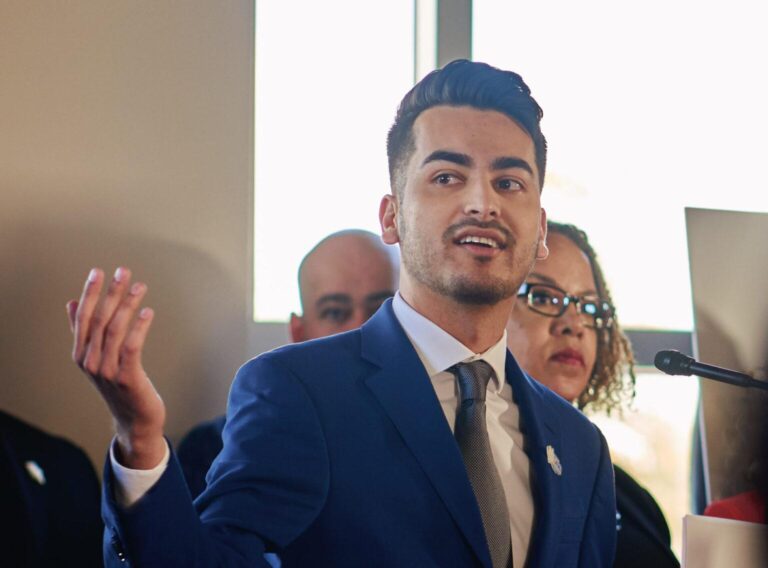Bridging the Healthcare Divide: Challenges and Solutions for Undocumented Immigrants in Las Vegas and Beyond
Healthcare Barriers Confronting Undocumented Immigrants in Las Vegas
Undocumented immigrants residing in Las Vegas face a complex web of obstacles when attempting to access healthcare services. Legal restrictions exclude them from federal programs such as Medicaid and the Affordable Care Act, forcing many to depend on overstretched community clinics and emergency departments for their medical needs. This reliance often results in prolonged wait times and limited availability of extensive care. Additionally, language differences and the pervasive fear of immigration enforcement discourage timely medical consultations, increasing health vulnerabilities within these communities.
Primary challenges include:
- Exclusion from public health insurance schemes
- High personal expenses for private healthcare
- Scarce preventive care and chronic illness management
- Insufficient mental health and maternal health services
| Healthcare Dimension | Effect on Undocumented Immigrants |
|---|---|
| Emergency Department Usage | Frequently the only option due to lack of alternatives |
| Preventive Healthcare | Underutilized, leading to late-stage diagnoses |
| Management of Chronic Conditions | Inconsistent treatment and follow-up |
| Mental Health Access | Extremely limited availability |
Economic and Social Impacts of Healthcare Inequities on Undocumented Populations
The lack of accessible healthcare for undocumented immigrants in Las Vegas and nationwide has far-reaching economic and social repercussions. Without insurance coverage, many delay medical attention until emergencies arise, resulting in costly hospital visits that strain family finances. This financial burden frequently enough forces difficult choices between healthcare and basic necessities. Employers in sectors heavily staffed by undocumented workers also experience indirect losses through decreased productivity and increased absenteeism, highlighting a broader economic impact.
Socially, these healthcare disparities deepen inequalities and foster mistrust within immigrant communities. The absence of culturally sensitive care and the constant fear of deportation discourage engagement with health services, worsening mental health outcomes and increasing community-wide health risks. Notable consequences include:
- Higher prevalence of untreated chronic diseases
- Elevated risk of infectious disease transmission due to lack of preventive care
- Increased social isolation and stigma, weakening community bonds
| Area of Impact | Economic Consequence | Social Consequence |
|---|---|---|
| Healthcare Accessibility | Escalated emergency care expenses | Heightened fear and social stigma |
| Workforce Productivity | Increased absenteeism | Community stress and fragmentation |
| Chronic Disease Burden | Financial hardship | Reduced quality of life |
Local Government Initiatives and Policy Obstacles in Closing the Healthcare Gap
Effectively addressing healthcare disparities for undocumented immigrants demands carefully crafted policies that reconcile federal limitations with local realities.Since federal programs largely exclude undocumented individuals, local governments have become pivotal in providing essential health services. Many municipalities have launched innovative programs such as community health fairs, expanded emergency Medicaid coverage, and culturally tailored outreach efforts to mitigate barriers like deportation fears, insurance gaps, and language challenges.
Local authorities often act as vital safety nets where federal policies fall short. However, balancing public health priorities with budgetary constraints remains a significant challenge, especially in metropolitan areas like Las Vegas.
| Local Government Program | Focus Area | Outcomes |
|---|---|---|
| Community Health Events | Screenings and preventive care | 25% increase in early disease detection |
| Mobile Health Units | Outreach to immigrant and rural populations | Access improved for over 15,000 residents |
| Legal Assistance for Healthcare Access | Immigration and health rights education | Reduced apprehension about seeking care |
| Collaborations with Nonprofits | Language and cultural mediation | Enhanced trust and communication |
- Funding shortages often limit the expansion of inclusive healthcare programs.
- Legal complexities hinder the delivery of professional medical services to undocumented individuals.
- Engaging communities to build trust and awareness remains a persistent challenge.
- Fragmented policies across jurisdictions create inconsistent healthcare access.
For lasting improvements, coordinated efforts among local, state, and federal agencies, alongside community organizations, are essential. Without unified strategies, the healthcare disparities faced by undocumented populations risk worsening, undermining public health and social justice goals.
Community-Driven Innovations Expanding Healthcare Access for Undocumented Residents
Across Las Vegas and the broader United States,grassroots groups and local health providers are pioneering innovative approaches to narrow the healthcare gap for undocumented immigrants. These include telemedicine platforms offering multilingual support, mobile clinics delivering care directly to underserved neighborhoods, and partnerships with faith-based organizations to foster trust and cultural sensitivity. Such initiatives provide vital services ranging from preventive health screenings to mental health counseling, all while minimizing fears related to immigration status.
Central to these efforts is active community involvement, ensuring that healthcare services are tailored to the specific needs of immigrant populations.Key strategies encompass:
- Sliding-scale payment systems to reduce financial burdens
- Training community health workers to conduct outreach and education
- Collaborations with legal aid organizations to address immigration-related healthcare concerns
This collaborative model not only enhances immediate health outcomes but also builds lasting trust, laying the groundwork for future public health initiatives within immigrant communities.
| Program | Impact | Location |
|---|---|---|
| Mobile Health Vans | Over 2,000 patient visits annually | Las Vegas |
| Multilingual Telehealth Services | More than 500 consultations monthly | Nationwide |
| Community Health Worker Training | 150 volunteers trained | Southwestern U.S. |
Final Thoughts
The persistent healthcare disparities confronting undocumented immigrants in Las Vegas and across the nation represent a critical public health and social equity issue. Overcoming these challenges necessitates comprehensive reforms in policy and robust community engagement to guarantee equitable access to healthcare services irrespective of immigration status. Without decisive action, the health and well-being of thousands remain at risk, posing significant challenges for policymakers, healthcare providers, and society as a whole.




